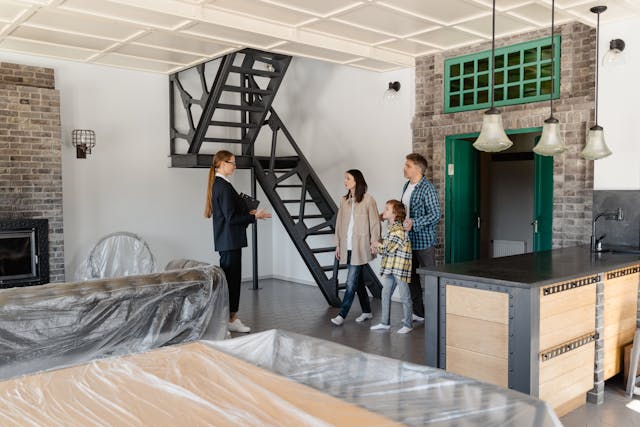

Rent vs Buy Analysis for City Dwellers
That eternal question haunting every urbanite's wallet: should I keep throwing money at rent or take the plunge into homeownership? Let's break it down like your last breakup - pros, cons, and what nobody tells you.
The Great Urban Housing Debate
Here's the thing about cities - they'll happily chew up your paycheck whether you're renting or buying. But which option leaves more meat on the bone? I've run the numbers through my personal finance obsession (and made all the mistakes so you don't have to).
First, let's kill the biggest myth: there's no universal right answer. What works for your tech-bro neighbor earning $300K might ruin you. It's like when you try to copy someone's skincare routine and end up with a face resembling a pepperoni pizza.
The 5-Year Rule: If you're not staying put for at least 5 years, buying rarely makes sense. Closing costs, realtor fees, and that mysterious "administrative charge" that's definitely just made up will eat you alive otherwise.
Now let's talk hidden costs - because oh boy, they're hiding everywhere:
- Renting: That sweet gym in your building? You're paying for it whether you use it or not (guilty as charged)
- Buying: Welcome to the world of special assessments where your condo board decides everyone needs gold-plated elevator buttons
And here's what most calculators won't tell you: opportunity cost. That $50,000 down payment could be earning 7% in the market instead of being trapped in drywall. But then again, so could your rent money. See why this keeps me up at night?
Crunching the Numbers (Without Crunching Your Soul)
Let's get practical. Here's how I analyze this for my clients (and my perpetually indecisive sister):
The 30% Test: If total monthly ownership costs (mortgage + taxes + insurance + maintenance) exceed 30% more than local rents, lean toward renting. In Seattle last month? Buying costs averaged 42% higher. Yikes.
But percentages don't tell the whole story. Consider:
- Absolute costs: A $2,500 rent vs $3,200 mortgage seems clear until you realize $700/month builds equity
- Time horizons: Every extra year you stay makes buying more attractive (compounding works both ways!)
- Market madness: In 2022, Austin rents jumped 18% in six months. Fixed-rate mortgages don't do that.
Here's my controversial take: The "throwing money away on rent" argument is mostly BS. You're paying for flexibility - the ability to chase jobs, escape bad neighbors, or spontaneously move to Barcelona when your existential crisis hits. Try doing that with a mortgage.
Case Study: The Tech Transplant
Meet "Dave" (name changed because he's still embarrassed). Moved to San Francisco in 2019 for a $140K tech job. Choices:
- Rent: $3,800/month for a 1-bedroom
- Buy: $850K condo (with $170K down)
Dave bought. Then COVID hit. Then remote work. Then layoffs. Now he's stuck in a condo he can't afford to sell (thanks, 6% realtor fees) while identical units rent for $3,200. The lesson? Job stability matters more than interest rates.
"I thought I was being adult by buying. Turns out I just bought the world's most expensive ball and chain." - Not Actually Dave
Case Study: The Lifelong Renter
"Maria" (my actual aunt) has rented the same Chicago apartment since 2005. Her rent-controlled $1,200/month 2-bedroom now goes for $2,900 market rate. She's saved approximately $244,800 in housing costs over 18 years (yes, I did the math).
But here's the twist - she invested her would-be down payment in Apple stock. That $30,000 would now be... wait for it... $1.2 million. Sometimes the road less mortgaged makes all the difference.
Warning: This strategy requires actually investing the difference, not spending it on avocado toast and Peloton classes (no judgment).
Case Study: The House Hacker
Then there's my friend Jamal, who bought a Chicago three-flat in 2018. Lives in one unit, rents the others. His net housing cost? Negative $400/month. Absolute legend.
The numbers:
- Purchase price: $420,000 (20% down)
- Rental income: $3,900/month total
- His mortgage+expenses: $3,500
Key takeaway: Creative ownership structures can change the game entirely. But you've gotta be willing to play landlord - which means midnight calls about overflowing toilets.
My Personal Housing Saga
I've done both. Rented a shoebox in NYC where my "kitchen" was a hotplate next to the toilet (true story). Then bought a place in Philly during the 2018 market dip. Sold it two years later for a 22% profit thanks to pure luck.
What I learned:
- Closing costs are robbery disguised in paperwork
- No inspector will find all the problems (RIP my basement during that first heavy rain)
- The emotional weight of ownership is real - I stressed about interest rates more than my dating life
Now? I'm back to renting while building my "forever home" fund. Because sometimes the right time just... isn't now.
Your Turn: The Rent vs Buy Calculator
Grab your phone and let's do a quick gut check:
- Current rent: _____
- Price of comparable home: _____
- Down payment available: _____ (be honest!)
Now the magic question: Can you invest the difference between options and still sleep at night? If numbers say buy but your stomach says rent, listen to your stomach. Personal finance is, well, personal.
Pro Tip: The NYTimes Rent vs Buy calculator is my favorite tool - it factors in everything from investment returns to how often you repaint. Play with it like it's The Sims, but with your actual future.
The Verdict?
After all these numbers and stories, here's my honest take: The best choice depends on your...
- Job stability (no job = no mortgage payments)
- Handiness level (YouTube can't fix everything)
- Five-year plan (or lack thereof)
- Tolerance for bureaucracy (HOAs are the DMV of housing)
So what's your next move? Keep renting guilt-free? Start house hunting? Share your thoughts below - I read every comment (between refreshing Zillow listings, naturally).
"Buying a home is a lifestyle choice disguised as a financial decision." - Some wise person probably


